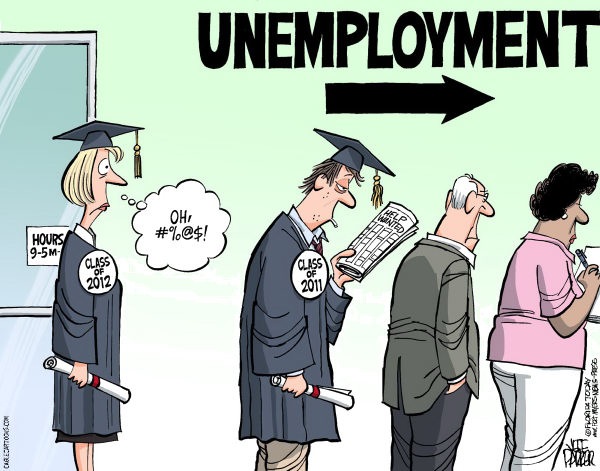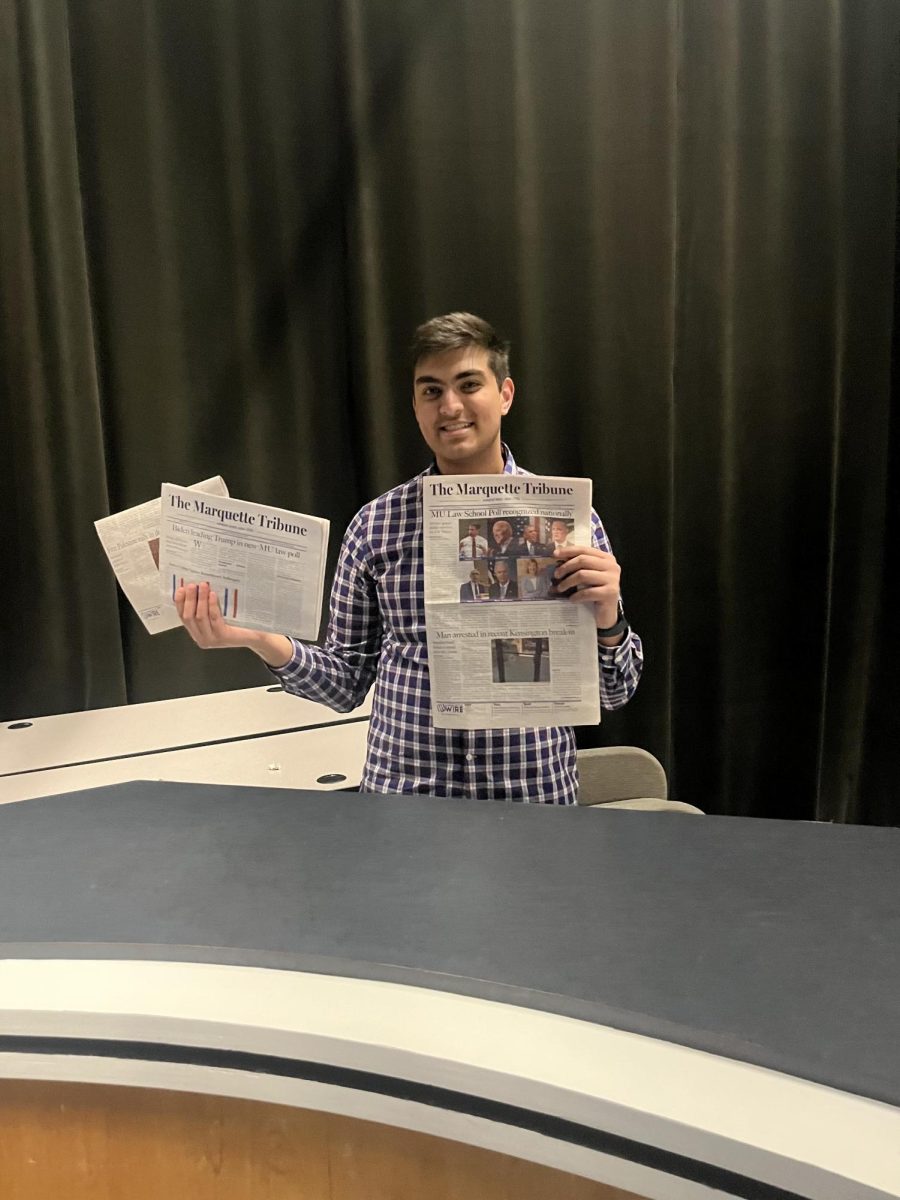College can often seem like an extended stay at summer camp because you don’t have to answer to mom and dad, you can stay up as late as you want and can eat Swedish Fish for dinner if you’re in the mood. However, there comes a time in every college student’s life when Solo cups and Netflix are exchanged for business cards and cover letters. This transition does not have to be painful. The post grad blues have a cure, and that cure is you. Remember that you can do it. You passed calculus and managed to never turn a load of laundry pink, so you can find a job too.
The change from college student to college graduate is difficult to explain. Four years of a student’s life is spent perfecting a routine, attending classes and meeting school requirements. That all goes out the window come graduation day. Some people start their dream jobs and others move back home to their families.
It’s hard out there for a graduate. There are so many qualified applicants that most employers now find it permissible not to acknowledge those not chosen for a position.
“Sadly, most of my job applications have gone completely ignored, and most of the rest have only been acknowledged by form letters,” says Matthew Reddin, a 2012 alumnus of the College of Communication. “It’s in my personal network of connections where I’ve found the most success, as if you know someone personally. It’s harder for them to blow off your email or phone call, even if they don’t have any opportunities available at all, much less one they’d hire you for.”
Our parents can’t relate to this since they grew up in an era where a high school education was sometimes enough to stay with a company for decades. Victor Jacobo graduated from the College of Communication in December. He says, “sending out resume after resume to any and every employer and getting no responses is very discouraging. Getting a ‘no’ is better than not getting anything at all.” Today, we are hardly even given that ‘no’ anymore.
Internships are no longer a direct path to employment either. While they are great experience, they can be unfeasible because few are paid and nearly all are as demanding as a real job. Some students have to turn down internships after graduation because they cannot afford to work for free.
For many students, simply having a degree in a particular field is enough to find a job after graduation. But other careers are far more easier to get into if you have a prior contact. Luckily, Golden Eagles take care of their own.
One day, you may be offered a job that doesn’t quite use the skill set you spent $30,000 per year to cultivate. It’s okay to accept a position to pay the bills. You can always look for another. It’s also okay to accept a position where you will be pushed and your talents will be challenged in the hope that you’ll grow.
Emily Foster, a 2013 alumna of the College of Communication, wishes she could give her college self some advice.
“Really evaluate your skill set, and to never let an opportunity to excel pass you by,” she says. “It seems so cliché, but the only thing worse than failure is never pursuing an opportunity in the first place.”
Sometimes, pursing this opportunity will mean you also have to work nights bagging groceries, but if you’re able to do something you love, it’s worth it.
Jennifer Solario graduated in 2012 with a degree in broadcasting. She moved home to California and spent months looking for a job before finding more than one that piqued her interest. Her patience and confidence in her abilities allowed her to wait.
Remember, that you have a set of skills unique to you. Never sell yourself short or doubt the talents you know you have. Not having a job is not reflective of not having talent. Still, it’s frustrating to be turned away from a job when you “look at an application and see that you match all of the qualifications,” says Emily Joria, a 2013 alumna of the College of Communication. She now works for Disney as a receptionist. While that’s not exactly what she had in mind when she majored in public relations, she sees it as an opportunity to perfect her people skills.
Jacobo summed up his strategy for life after college by saying, “Be patient. Fill your time. Always be on your toes and something will come along, eventually.”
As you approach your future, have confidence in yourself and be open to whatever comes your way. More importantly, don’t forget to enjoy your four years at Marquette as much as possible.










